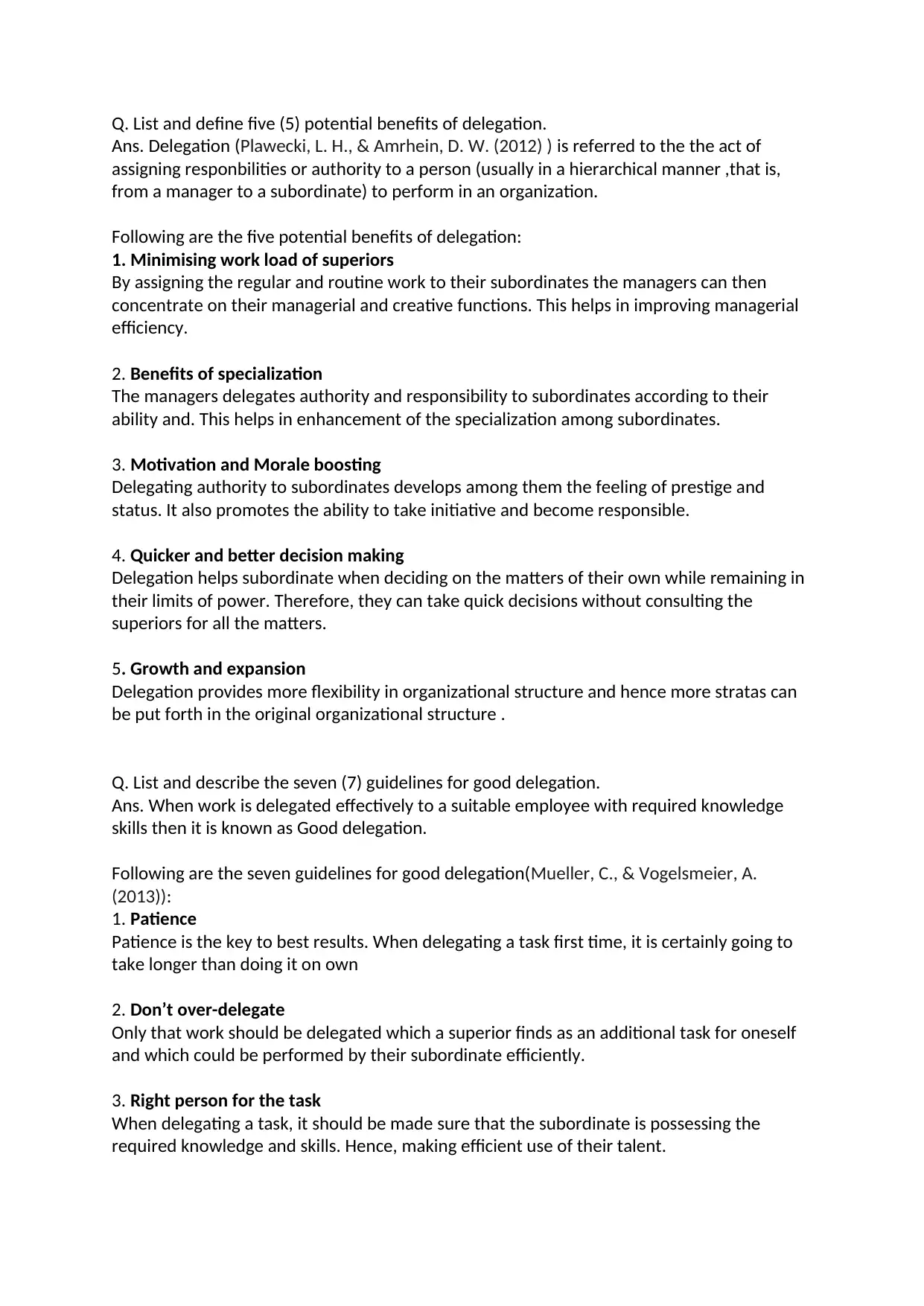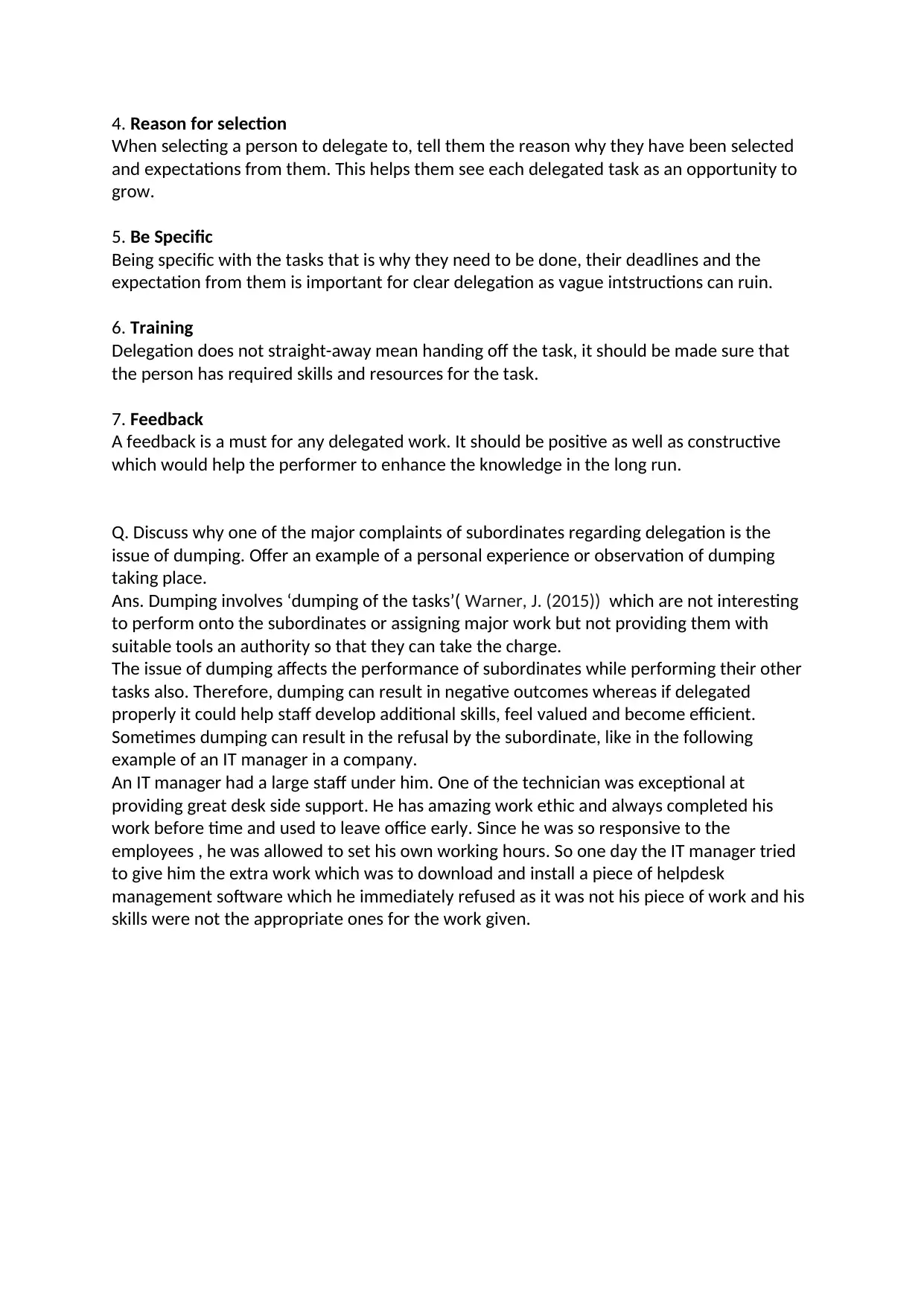Management: Delegation Benefits, Guidelines, and Subordinate Issues
VerifiedAdded on 2019/10/09
|3
|899
|446
Homework Assignment
AI Summary
This assignment delves into the critical aspects of delegation within leadership management. It begins by outlining and defining five potential benefits of delegation, such as minimizing workload, fostering specialization, boosting motivation, enabling quicker decision-making, and facilitating organizational growth. Following this, the assignment provides a detailed description of seven guidelines for good delegation, including patience, selecting the right person, providing clear reasons and expectations, ensuring proper training, and offering constructive feedback. Finally, the assignment addresses a major complaint regarding delegation: the issue of 'dumping,' where undesirable tasks are assigned to subordinates without appropriate support or authority. It offers a real-world example to illustrate the negative consequences of dumping, emphasizing the importance of fair and effective delegation practices for both managers and subordinates. The assignment is well-referenced with citations from relevant academic sources.
1 out of 3










![[object Object]](/_next/static/media/star-bottom.7253800d.svg)